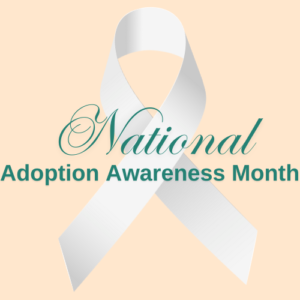Parenting and Prevention
Safe Place to Grieve
 by Jackie Hester
by Jackie Hester
A 4-year-old child whispers in her mother’s ear, “why did she go away and leave me?” Her mother asks, who? And the child looks at her with teary eyes and answers “my other mother.”
Because no parent wants to see their child in pain, they instinctively try to fix it by taking it away. Parents will silence adoption loss by not talking about it or even pretending that separation trauma does not exist. At Parenting Matters we help parents navigate their child’s grief journey by creating a safe home environment where adoption grief is shared and freely talked about within the family. We do this by teaching Trust Based Relational Intervention (TBRI) principles.
Not every adopted child will grieve the loss of their biological family the same way, but every adopted child will feel this loss. Even infants placed for adoption at birth experience early loss from the biological mother, which can impact the infant and adoptive mother’s attachment process going forward. This separation is a form of early childhood trauma, described by adoption expert Nancy Verrier as the primal wound. Some say that adoptees experience their first death, at birth.
Adoption loss is woven through the developmental stages of childhood. An example is, around the age of 7 years-old kids begin to understand the concept of reciprocal relationships- if John is taller than Mike, then Mike is shorter than John. Logical reciprocity in adoption development is when a child recognizes “that to be with my adoptive family than I must have first come from somewhere else.” At this point, adoption is now seen in terms of family building and family loss. The realization that the child has lost their first family is foundational to adoption loss. Fast forward to their teen years where they are trying to process the magnitude of adoption losses: loss of biological family, loss of genetic continuity, loss of religion, racial identity, and ethnic background. The losses emerge as big feelings that can include anger, rejection, and abandonment. Adoptive parents have the additional parenting responsibility of helping their child navigate their grief.
TBRI Techniques for Creating an Emotionally Safe Home for Grief
- Parents serve as an emotional coach for their children. Parents don’t fix feelings but provide a safe environment for feelings to flow. Parents can do so by
 sharing grief, modeling healthy expressions of grief, and teaching children to identify, name, and express feelings.
sharing grief, modeling healthy expressions of grief, and teaching children to identify, name, and express feelings. - Parents recognize that adoption grief can be a lifelong healing process. That early separation from a biological parent impacts attachment and relationships throughout an individual’s life. Someone once said: Grief is like glitter. You can throw a handful of it into the air, but when you try to clean it up, you’ll never get it all. Even long after the event you will find glitter tucked into corners, it will always be there- somewhere.
- Parents do not personalize a child’s behavior. When grief looks like defiance, anger, or acting out, parents stay steady in their response and show compassion, and nonjudgement.
- Parents provide a home where adoption questions can be asked and answered with truth and transparency. Children will ask about their birth parents, birth story, and birth siblings to make sense of their adoption narrative.
- Parents are educated on the stages of grief, remembering that grief is not linear. Adoption loss is described as an ambiguous loss that is unique and complex. Parents give a voice to the ambiguity.
- Parents will recognize that their child’s loss is triggered by events and/or holidays, like Mother’s Day, and specific dates such as birthdays.
Adoption loss and grief experienced alone is debilitating. However, when experienced in a home where there is emotional safety and a parent who is understanding, supportive and loving, healing is possible.

Jackie Hester, MA, is a seasoned professional with a deep commitment to supporting children and families through various roles and expertise. She holds a Master’s degree in Psychology, with completed coursework towards a doctorate in Psychology and Counseling. As a certified TBRI Practitioner and Reality Therapy Trained counselor, Jackie has specialized in adoption counseling and educational advocacy. Her career spans over 16 years, including significant experience in therapeutic foster care and adoption casework, where she has helped navigate complex family dynamics and provide crucial support. Jackie has also led adoption support groups and offered individual and couples counseling, emphasizing family therapy and the welfare of children. Dedicated to advocacy, she has served as a Guardian ad Litem and volunteered extensively with families, demonstrating her enduring passion for improving the lives of children and promoting family well-being.
